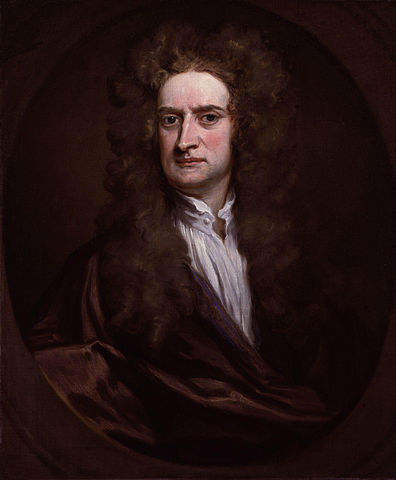アイザック・ニュートンは、17世紀のイングランドの物理学者、数学者、天文学者で、彼の業績は今日でも多くの科学者に影響を与えています。彼の言葉は、数百年後の今でも、私たちにとって多くの意味を持っています。この記事では、アイザック・ニュートンの名言や考え方を一覧表で紹介します。これらの名言を通じて、彼の思考の深さや、科学への情熱、真実を求める姿勢について考えるきっかけになれば幸いです。
| 名言の原文 | 日本語訳 | 名言の背景 | 引用文献 |
|---|---|---|---|
| “If I have seen further it is by standing on the shoulders of Giants.” | “私がこれまでに見たものは、巨人の肩に立つことによってです。” | ニュートンは自身の業績を、過去の偉大な科学者たちの業績の上に築かれたものであると認識していました。 | Letter to Robert Hooke, February 5, 1676 |
| “Nature is pleased with simplicity. And nature is no dummy.” | “自然は単純さを好む。そして、自然は愚かではない。” | ニュートンは、自然の法則は単純であると信じていました。 | Isaac Newton: Principia Mathematica, 1687 |
| “To every action there is always opposed an equal reaction.” | “すべての作用には、常に等しい反作用が対立しています。” | これはニュートンの三法則の第三法則です。 | Isaac Newton: Philosophiæ Naturalis Principia Mathematica, 1687 |
| “What we know is a drop, what we don’t know is an ocean.” | “私たちが知っていることは一滴、知らないことは大洋です。” | ニュートンは、人間の知識は無限に広がる宇宙の中で非常に限られていると考えていました。 | Isaac Newton, as quoted in Memoirs of the Life, Writings, and Discoveries of Sir Isaac Newton (1855) by Sir David Brewster |
| “I can calculate the motion of heavenly bodies, but not the madness of people.” | “私は天体の運動を計算することができますが、人々の狂気は計算できません。” | ニュートンは、物理学の法則は計算可能だが、人間の行動は予測不可能であると考えていました。 | The History of the Reign of Queen Anne, 1742 |
| “Tact is the knack of making a point without making an enemy.” | “鋭い洞察力は、敵を作らずにポイントを作る能力です。” | ニュートンは、意見の相違を敵対的なものにしないために、洞察力と戦術が必要であると考えていました。 | Isaac Newton, as quoted in Leadership : A Treasury of Great Quotations for Those Who Aspire to Lead (1998) by William and Leonard Safire. |
| “If I have ever made any valuable discoveries, it has been due more to patient attention, than to any other talent.” | “私が今までに価値のある発見をしたことがあれば、それは他のどんな才能よりも、忍耐強い注意によるものです。” | ニュートンは、価値のある発見は、特定の才能よりも、注意深く忍耐強く観察することから得られると信じていました。 | Isaac Newton, as quoted in Brewster’s Memoirs of Newton, vol ii. p. 407. |
| “Truth is ever to be found in the simplicity, and not in the multiplicity and confusion of things.” | “真実は常に単純さの中に見いだされ、物事の多様性や混乱の中には見いだされない。” | ニュートンは、真実は単純な事実にあると信じていました。 | Isaac Newton, as quoted in The Faith of Great Scientists (1997) by Michael Poole. |
| “A man may imagine things that are false, but he can only understand things that are true.” | “人は偽りのことを想像することができますが、真実のことだけを理解することができます。” | ニュートンは、人間は虚偽の事実を想像することはできるが、真実の事実だけを理解することができると信じていました。 | Isaac Newton, as quoted in Philosophiæ Naturalis Principia Mathematica, 1687 |
| “I do not know what I may appear to the world, but to myself I seem to have been only like a boy playing on the seashore, and diverting myself in now and then finding a smoother pebble or a prettier shell than ordinary, whilst the great ocean of truth lay all undiscovered before me.” | “私は世界にどう映るか分かりませんが、自分自身にとっては、ただ海岸で遊ぶ少年のようで、時折普通よりもなめらかな小石やきれいな貝殻を見つけて楽しむだけで、まだ発見されていない真実の大洋が私の前に広がっているように思えます。” | ニュートンは、自身の業績にもかかわらず、まだ発見されていない真実が多くあると感じていました。 | Memoirs of the Life, Writings, and Discoveries of Sir Isaac Newton (1855) by Sir David Brewster |
| “I do not define time, space, place and motion, as being well known to all.” | “私は時間、空間、場所、運動を定義しません、それはすべての人によく知られています。” | ニュートンは、時間、空間、場所、運動といった基本的な概念は、人々にとって既知であり、定義する必要はないと考えていました。 | Isaac Newton, Philosophiæ Naturalis Principia Mathematica, 1687 |
| “I feign no hypotheses.” | “私は仮説を偽りません。” | ニュートンは、自分の理論を裏付けるために仮説を作り出すことはしないという姿勢を示していました。 | Isaac Newton, Philosophiæ Naturalis Principia Mathematica, 1687 |
| “Plato is my friend — Aristotle is my friend — but my greatest friend is truth.” | “プラトンは私の友人です — アリストテレスは私の友人です — しかし、私の最も偉大な友人は真実です。” | ニュートンは、プラトンやアリストテレスなどの偉大な哲学者を尊敬していましたが、真実を追求することが最も重要だと考えていました。 | Isaac Newton, Quaestiones Quaedam Philosophicae, 1661 |
| “No great discovery was ever made without a bold guess.” | “大きな発見は、大胆な予測なしには決してされませんでした。” | ニュートンは、大きな発見をするためには、大胆な予測が必要だと考えていました。 | Isaac Newton, as quoted in The Scientific Enterprise in Early Modern Europe: Readings from Isis (1996) by Peter Dear |
| “The description of right lines and circles, upon which geometry is founded, belongs to mechanics.” | “幾何学の基盤となる直線と円の記述は、力学に属しています。” | ニュートンは、幾何学の基本的な概念である直線や円は、力学の一部であると考えていました。 | Isaac Newton, The Mathematical Papers of Isaac Newton, 1679 |
| “To explain all nature is too difficult a task for any one man or even for any one age.” | “自然のすべてを説明することは、どんな一人の男にとっても、またはどんな一つの時代にとっても難しすぎる任務です。” | ニュートンは、自然の全てを理解し説明することは、一人の人間や一つの時代には過ぎたるものであると考えていました。 | Isaac Newton, The Correspondence of Isaac Newton, 1676 |
| “To myself I am only a child playing on the beach, while vast oceans of truth lie undiscovered before me.” | “私自身にとって、私はただビーチで遊ぶ子供に過ぎず、私の前には未発見の真実の広大な海が広がっています。” | ニュートンは、彼自身の知識や発見が、まだ未知の真実の広大な海に比べれば、ごくわずかなものであると感じていました。 | Isaac Newton, as quoted in Memoirs of the Life, Writings, and Discoveries of Sir Isaac Newton (1855) by Sir David Brewster |
| “Whence arises all that order and beauty we see in the world?” | “私たちがこの世界で見るすべての秩序と美しさは、どこから生じるのでしょうか?” | ニュートンは、世界の秩序と美しさの起源について深く考えていました。 | Isaac Newton, Opticks: Or, A Treatise of the Reflections, Refractions, Inflections and Colours of Light, 1704 |
| “We build too many walls and not enough bridges.” | “私たちは多くの壁を築きすぎ、橋を築くのが不足しています。” | ニュートンは、人々はしばしば争いの壁を築くことに焦点を当てすぎ、協力の橋を築くことが不足していると考えていました。 | Isaac Newton, as quoted in The Newton Handbook (1987) by Derek Gjertsen |
アイザック・ニュートンの名言には、彼の科学への愛情や、真実を追求する強い意志が表れています。彼の言葉には、今日の私たちにも多くの教訓が含まれており、これからも彼の言葉に学び、自分自身を高めていく手助けになるでしょう。この一覧表を参考に、ニュートンの言葉の中に、新たな発見やインスピレーションを見つけてください。
この他にも「世界各国の偉人一覧」で名言を紹介していますので興味のある方はご覧ください。



コメント